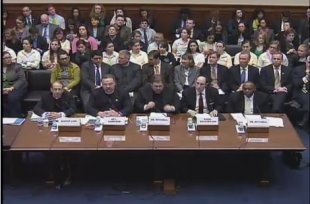This is part of a series of articles intended to illustrate the usefulness of treating atheism as a social justice issue, rather than trying to wall atheist discourse off from social justice discussions. Read the introductory post here. Read the second post here.
One of the most common critiques of discussing issues of race in atheist communities is that it is ‘divisive’. For a moment, I will hold my bile and grant the most generous interpretation of this kind of statement – since race is not a valid reason to divide groups of people, we should not treat people from different racial groups differently; discussing race divides the population into arbitrary groups, and that’s not fair. The reason that it is almost exclusively white people who make this statement is perfectly illustrative of the problem with it: race may not be a morally valid way of dividing the population, but racialized people are acutely aware of the fact that it does divide the population. Pretending that isn’t so does not somehow make the effect disappear.
At her new blog Freethoughtify, Bridget Gaudette tries to tackle this meme head-on: [Read more…]


